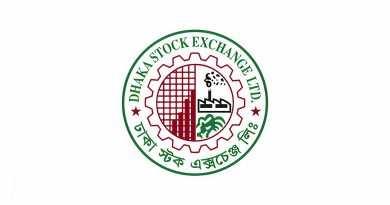The Chittagong Stock Exchange (CSE) has formally proposed listing on the Dhaka Stock Exchange (DSE), aiming to complete its long-pending demutualisation process in the absence of self-listing regulations.
If approved by the Bangladesh Securities and Exchange Commission (BSEC), the CSE plans to offload 35 per cent of its shares under the book-building method—over a decade after stock exchanges were mandated to demutualise.
Under the Demutualisation Act, stock exchanges are required to be listed either on their own board or that of another exchange, although no specific timeframe is prescribed. The CSE’s board has now sought regulatory clearance to proceed with the listing on the DSE.
CSE Managing Director M Shaifur Rahman Mazumdar said, “We do not need self-listing regulations if the regulator allows our listing on the DSE. Formulating such rules would take time, but we are ready to move quickly.”
Valuation Linked to Commodity Exchange Prospects
The CSE is banking on its upcoming commodity exchange (CX), expected to begin trial operations this December, to bolster its valuation. The port city bourse has requested that its share value be determined in light of the potential revenue stream from the CX, which will initially support cash-settled trades of gold, cotton, and crude oil.
Although the CSE’s equity market activity has dwindled—reflected in low trading volumes and reduced earnings—the exchange remains financially stable due to strong returns from fixed deposit receipts (FDRs). For the fiscal year 2023–24, the CSE reported a profit of Tk 317 million, with financial income contributing Tk 392 million, far exceeding the Tk 64 million from operating profit.
The exchange currently hosts 623 listed securities, including 331 companies, with a total market capitalisation of Tk 7.26 trillion. Despite having an Alternative Trading Board (ATB) and an SME Board, these platforms are yet to gain traction.
Share Transfer Plan
As part of the listing process, the CSE will not raise fresh capital but will instead transfer ownership of 35 per cent of its shares to investors. The board has proposed allocating 20 per cent to foreign institutional investors and 15 per cent to the general public via an initial public offering (IPO).
However, local institutional investors are unlikely to qualify due to ownership restrictions under demutualisation rules. These stipulate that initial shareholders and their affiliates cannot collectively own more than 40 per cent of the exchange. Since this limit has already been reached, domestic institutions—such as banks and insurers—are effectively disqualified.
“We’re targeting four foreign institutions, each holding a maximum of 5 per cent, to take up the 20 per cent stake,” said the CSE MD.
The remaining 15 per cent will be offered to general investors through IPO. However, the CSE has expressed concerns over the current public issue valuation rules, which use a formula based on a company’s five-year weighted average EPS and NAV per share. According to Mr Mazumdar, this method fails to reflect true fundamentals due to regulatory rigidities and manipulation by some bidders.
“We are requesting a special order or waiver from the valuation cap so that CSE can secure a fair value,” he added.
Previous Stake Sale
As part of its demutualisation, the CSE previously sold a 25 per cent stake to ABG Ltd., a subsidiary of Bashundhara Group, at a price of Tk 15 per share.
With this latest move, the CSE joins a broader push by regulators and the government to deepen Bangladesh’s capital markets by bringing in quality listings and attracting foreign investors.






